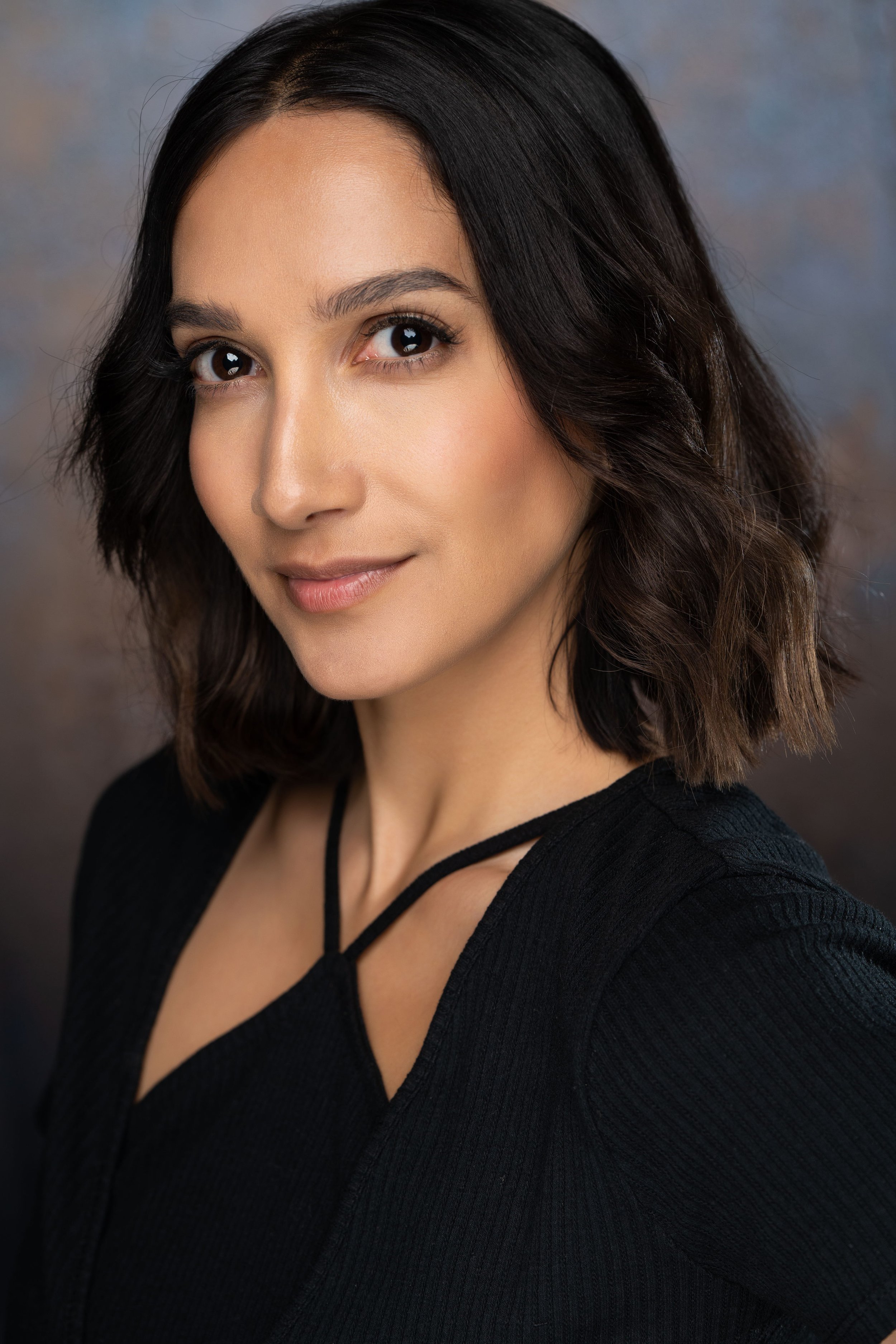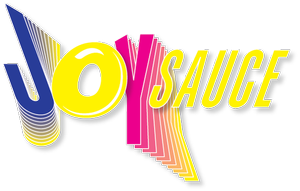SUKKI, Activist and Artist, Calls For Action in I See Her
Mixed Asian Media - November 9, 2023
By Angela Wong Carbone
Powered by JoySauce
SUKKI, notably Singapore’s first burlesque artist Sukki Singapora, has always felt her tricultural identity tied into activism. In her directorial debut, SUKKI combines expression and outreach in the short film, I See Her. Here in conversation with Angela Wong Carbone, SUKKI explains how her late father, lived experiences, and long journeys of self-discovery fostered her creative choices in the film.
Content warning: Discussion of domestic abuse and domestic violence.
*This interview has been edited for length and clarity.
Interview
I See Her distilled what it means to have a certain kind of experience relative to domestic violence. What was the impetus for the film?
Previously I had a theatrical career. Everyone back then told me, “We knew you'd be a director.” I had to fight to become an artist despite an incredibly strict Asian family. I've literally had to be combative in order to carve my way in this place that was so disapproved of.
I found that my art has become intrinsically linked with causes. And I think in part that's due to the fact that I never want anyone to experience the kind of repression and stifling of creativity that I experienced growing up. I'm actually the ambassador of a charity called the Sharan Project. I'd met them 10 years ago and I'd said to the founder, “Hey, when I make it, I promise you I'll give back in any way that I can.”
Cut to 10 years later, there was an opportunity to create content for the “Enough” campaign in the U.K. It was essentially to raise awareness of the rise in cases of domestic abuse and domestic violence, post-pandemic. I counter-pitched them and said, how about I write and direct an entire short for charity.
I feel incredibly impassioned about this particular topic. It relates to [the Sharan Project] but I have found myself in situations with similar emotions.
Earlier in the year, my father died and it really took me down more than I thought it would take me down. My father was very proud of the person I was but [admitted] he would never be proud of what I did in terms of my career. And he ran out of time to see me as you see me: an artist. I was emotionally raw and I knew that the timing was right for me to do something authentic that resonated with me.
In this mixed-Asian culture that we live in, there's a reticence to understand burlesque as art. You’ve spoken at length about being able to reclaim the expression of your own sexuality through art. One's own agency is at risk when being subjected to domestic violence.
So to me, all the layers come together. One in four women in their lifetime will experience domestic violence. That experience, whether physical or emotional violence, is very common. I feel that reclamation of agency and feminine strength in the film. How did your expression as a burlesque artist spill into I See Her?
When I came to do this, it felt like [all my best dance performances were] a rehearsal round for [directing I See Her]. Burlesque was a way of me moving my body musically and having autonomy and taking control of myself and my sexuality. It really taught me musical movement through space. When I conceptualized the film, I already could smell, taste, and feel the soundtrack.
I was really disheartened by the [statistical] spike in cases of abuse against women and girls. [Knowing] that I'm biracial, tricultural, Indian, Singaporean, British, I wanted it to reach every community. I felt like language would be a barrier. I really wanted to convey emotions so it didn't matter where you were from, you’d be able to understand, and it would incentivize that call to action for the viewer. It's not a film about the survivor. It's really about the neighbor. And we're the neighbor.
When my father passed away, I felt like there were echoes of him in the room. I felt him literally planting this soundtrack into my head. The soundtrack allowed me to understand the movement of characters in the edit. The fact that I had this sense of musicality that had been part of my burlesque career really allowed me to follow the characters and direct shots in such a clear way.
Burlesque was just a way of getting myself to where I probably should have been all along anyway.
You mentioned that some of the music came from your father. Is a sense of cultural identity layered into the film?
You're the first person to ask me that. While we were filming the scene between the two neighbors, the fence in the middle opened by itself. My editor, Cynthia, said, “Oh, that's weird. The gate's open. We can't use that shot.” And I said, “No, we need to include that. I swear to God, I feel like that's my dad walking through the gate.”
In order to give it context with the sound design, I had to create a wind noise. I had spent a childhood as a biracial Asian being very embarrassed of my culture because I had been shamed by white teachers. I wanted to be one or the other. I was the only girl in dance that was Brown. Racially, I became incredibly aware of my skin tone.
Then my dad bought this Bollywood movie, which was ripped off of a CD from India. It was Kuch Kuch Hota Hai with Shah Rukh Khan.
A classic.
An absolute classic. And I remember watching it and I was like, it's me. I'm the over-the-top eccentric. I can't get through a sentence without gesticulating. It's me. I see why I'm like this. I'm not too much. I'm not too Brown. My dad loved the film and we watched it together.
So when the gate opens, you'll hear a beginning melody [based on that film] and that's my dad as he opens the door. And then later on, when the character Meena is walking back to the house, the wedding march is woven into the score [referencing] arranged and forced marriages. She's walking like a bride, but she's also walking to her funeral.
Nikkita Chadha in I See Her
Giving support to women is all about community, and this film is very much about community — about the people around you who could become your allies. What does community mean to you?
I've felt part of communities, but I've also felt very not part of communities. It's very bizarre being biracial and tricultural. It's like you're one or the other, but you're not. You're like everything, but you're nothing. Emotionally, I have two personality types coursing through my veins: half-Indian, half-British [and I can] ancestrally identify them.
That can create a comfort in circles, but you're one foot out constantly. But that's really turned into my superpower because I found that by being everything and nothing, I've really become culturally diplomatic. I'm able to unify and connect communities through different pockets I've experienced.
This particular film was actually based on a lived experience that I had when I was in Los Angeles with my neighbor, Sam Viotty. Sam's an incredible woman. Strong, intelligent, musical. She's a Black activist. We would go out onto our balconies in Los Angeles, and we'd talk.
It's hard to talk about art if you're a [marginalized person] without talking about issues of race. Because our art is really a regurgitation of our lived experiences, and if our lived experiences have unfortunately included racism or racial issues, it's very difficult to separate yourself from a certain degree of activism.
That really inspired me to make sure that it was a South Asian and Black actor. So with Sam [the character named after Sam Viotty], there's obviously that hesitation to step in and be involved with the character Meena. There's this fear, especially in America, about getting involved with authorities.
Another friend of mine, an incredible activist called Jamelia Land, actually recorded a voiceover about Black and Brown women working together.
I really can't stress enough how even though I did weave these little moments for both of our communities, I made them very nuanced because, at the end of the day, it's a story about two women.
I hope, really, that I'm seen as eventually a director, rather than a female Asian director, who writes stories that she's experienced. And I hope this film is fundamentally the story of two women.
It has cultural nuance, but that's not what it's about. It is a story of two women and the urge to help. The film is called I See Her. How can we as an audience help see her?
It's about awareness, becoming more vigilant. We live in a society, a world that's so connected and yet has never been more disconnected. We should stop existing in our bubbles, create conversations between our neighbors, not isolate each other.
I know social distancing has created a very isolated world. We should do everything to blend our households, create a sense of community. The first call to action is to incite a sense of responsibility that we are all citizens of Earth and we really do need to look out for each other.
The other thing is to encourage reaching out to your neighbor [who might be in need] if it's safe to do so. Or if not, there are charities like the Sharan Project, local abuse charities, domestic abuse charities, community charities. Eradicate the phrase, “It's not our responsibility.”
I hope that rather than just being a film that inspires us, [I See Her] becomes a tool that's shareable and usable for everyone.
End of Interview
October is National Domestic Violence Awareness Month in the United States. You can watch I See Her at iseeherthefilm.com on November 25, 2023, which is the International Day for the Elimination of Violence against Women as recognized by the United Nations. To learn more about the Sharan Project and how to support it, please visit their website.
Angela Wong Carbone (she/her) is a decorated actor and writer. Her writing has been recognized by AT&T HelloLab, Hillman Grad’s Mentorship program, The Gotham, Slamdance and others. Raised in New York by an immigrant Chinese mother and Italian-American father, Wong Carbone’s personal curiosity toward identity saturates her writing and she has contributed to Eileen Kelly’s Killerandasweetthang and Lulu Gioiello’s Far Near. As an actor, Wong Carbone has starred in NBC's Chicago Med, AppleTV+'s WeCrashed and IFC Films' Resurrection. In 2020, she was selected for the 19th annual ABC Talent Showcase. Wong Carbone holds a degree in Architecture from Cornell University and makes a mean lasagna.
JoySauce is a multimedia network dedicated to celebrating the full spectrum of Asian American and Pacific Islander narratives. The site boasts a vibrant library of content around entertainment, lifestyle, food, travel, culture, relationships, art, and education in the form of exciting new streaming shows, movies, standup comedy, provocative podcasts, and a suite of editorial updated daily.



